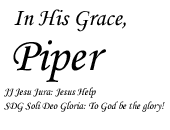On that day shall the priest make an atonement for you, to cleanse you, that ye may be clean from all your sins before the Lord {Lev. 16:30}.
So Christ also having been once offered to bear the sins of many shall appear a second time, apart from sin, to them that wait for him unto salvation {Heb. 9:28}.
I love the Jewish feasts; Jesus celebrated the feasts, and each one is a beautiful illustration of the person and work of Jesus Christ. The feasts are not just Jewish holidays; Leviticus refers to them as God’s appointed days. For Christians, Jesus fulfilled the feasts for us. Now our eyes are fixed on the atonement of Christ. But it does not end there. Every event in Jesus’ life, beginning with His birth, through His ministry, and with His death and resurrection—all occurred on a festival of Israel—God’s appointed time—a kairos interrupting the chronos of a fallen and broken world. Many scholars argue that events yet to be fulfilled will occur on a kairos—God’s appointed feasts of Israel.
On the Day of Atonement, the high priest enters the Holy of Holies to offer a sacrifice on behalf of the sins of Israel. Jesus Christ is our High Priest and was the perfect sacrifice for our sin, the epithet of the type and shadow woven in the liturgy of the Day of Atonement.
The first offering was a sin-offering and a burnt-offering for Aaron and his house. Then two goats for a sin offering and a ram for the burnt-offering for the congregation.
On this Day of Atonement, the high priest was required to first sacrifice an offering for himself and his family, then he could bring an offering on behalf of the people. First, it was a day of humiliation for the priest. He was required to put off all his priestly garments of glory. A shadow of Jesus, the King of Glory, leaving glory—from the foundation of the world; to redeem the world. Jesus’ humiliation on that day cries to us still through His Passion in the Scriptures.

The casting of the lots to determine the scapegoat is displayed on the world’s stage between two men; Jesus and Barabbas. Their fate lies in the judgment of the people—who will die and who will escape…the scapegoat. The people’s voice was heard that day in Pilate’s court—choosing a brutal murderer to escape forever—laying the sin of the people on Jesus. Jesus would be the sacrifice the Lord’s lot fell upon that day—fulfilling the atonement offering.
Nor do you understand that it is better for you that one man should die for the people, not that the whole nation should perish {John 11:50 ESV}.
The word atonement is used in the book of Leviticus forty-eight times, and it means covering. The blood offering was sprinkled on the mercy seat once and before it seven times. The high priest would then place incense on the altar before the mercy seat and a sweet cloud covered the mercy seat—a fragrant offering. The blood and the cloud of incense covered the mercy seat and this illustrated the work and worth of our precious Lord Jesus Christ—His blood causes the believer to be drawn near to Him.
This beautiful prose is part of the liturgy for Yom Kippur; a precious prayer of repentance:
We have become guilty, we have betrayed, we have robbed, we have spoken slander. We have caused perversion, we have caused wickedness, we have sinned willfully, we have extorted, we have accused falsely. We have given evil counsel, we have been deceitful, we have scorned, we have rebelled, we have provoked, we have turned away, we have been perverse, we have acted wantonly, we have persecuted, we have been obstinate. We have been wicked, we have corrupted, we have been abominable, we have strayed, you have let us go astray (Artscroll, 777).
The story of Jonah is recited on this night of atonement, revealing the God of second chances. Jesus fulfilled the sin offering for us, and absorbed God’s wrath.
I pray this inspires Christians to meditate on this Day of Atonement—of Christ and His sacrifice for us and instead of each one of us.
May God bless you on this, the Day of Atonement—He is the God of second chances…
L’shanah
Tova may your name be inscribed in the Book of Life!
Shalom.






































